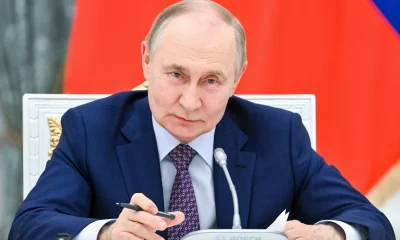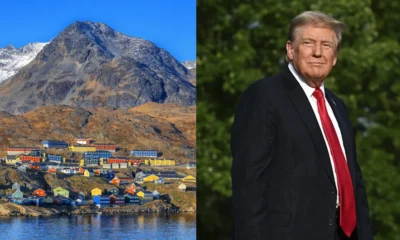Top stories
Trump’s Cabinet Picks Signal Loyalty, Provocation, and a ‘Retribution’ Agenda

In his return to power, President-elect Donald Trump’s Cabinet nominations are proving to be as contentious as his campaign promises. The selections of Congressman Matt Gaetz for attorney general, former Democratic presidential candidate Tulsi Gabbard as director of national intelligence, and Fox News anchor Pete Hegseth as defense secretary have sparked immediate backlash within Washington. While these choices align with Trump’s “drain the swamp” rallying cry, they have left some Republican senators reeling. For Trump, however, outrage seems intentional—a calculated move to affirm his anti-establishment agenda and display unyielding loyalty to his base.
Gaetz for Attorney General: A Controversial Choice
The nomination of Gaetz, one of Trump’s staunchest allies and a figure dogged by legal controversy, is perhaps the boldest of Trump’s recent appointments. Gaetz resigned from Congress shortly before the announcement, a move that avoided a House Ethics Committee report on allegations involving misconduct, improper gifts, and attempts to obstruct investigations. While Gaetz denies any wrongdoing, his nomination is poised to become a litmus test for Trump’s intent in the Justice Department.
In announcing his pick, Trump highlighted the need to end the “partisan weaponization” of the justice system, signaling his desire for an attorney general who will aggressively defend his administration and target perceived enemies. Gaetz’s support for disbanding the FBI and DOJ unless they “come to heel” aligns with Trump’s skepticism toward these institutions, furthering the view that his administration will seek retribution against what Trump has described as a “deep state” bent on undermining him.
The potential confirmation battle over Gaetz will test Senate Republicans, many of whom are already balking at the nomination. Senators Lisa Murkowski and Susan Collins, two of Trump’s GOP critics, expressed strong reservations, with Murkowski dismissing Gaetz as “unserious.” Newly elected Senate Majority Leader John Thune is already facing pressure to support the nomination—a trial that could shape his relationship with a president-elect eager to maintain absolute control over his party.
Tulsi Gabbard: A Loyalty Pick for Intelligence Chief
Gabbard’s nomination as director of national intelligence is similarly emblematic of Trump’s strategy. A former Democratic congresswoman with a record of challenging her party, Gabbard has voiced skepticism about U.S. intelligence agencies and supported Trump’s claims of political targeting. Known for doubting U.S. assertions that Syrian President Bashar al-Assad committed war crimes, Gabbard has been criticized by both parties as overly sympathetic to authoritarian regimes. Her nomination is seen as a rebuke to intelligence officials Trump has accused of undermining him since his first term.
By placing Gabbard in a role historically tasked with upholding objective intelligence, Trump underscores his desire to reshape the intelligence community in line with his worldview. Her appointment is a nod to Trump’s base, who view her as a disruptive force capable of overhauling an intelligence structure they believe has worked against the president.
Hegseth at the Pentagon: Culture Warrior or Defense Secretary?
The choice of Pete Hegseth for defense secretary further emphasizes Trump’s alignment with figures who reflect his political ideology over deep expertise. Though Hegseth is a veteran of the Iraq and Afghanistan wars, his role as a Fox News commentator—often critical of military diversity programs and progressive Pentagon policies—speaks to his appeal to Trump’s conservative supporters. Critics argue that Hegseth lacks the strategic and diplomatic experience typically expected of a defense secretary, potentially leaving him at a disadvantage in international crises.
Nevertheless, Hegseth’s views align with Trump’s priorities, making him an ideal candidate to champion a culture shift within the Pentagon. His nomination signals Trump’s intent to reshape the military into a less politically diverse institution that reflects the administration’s conservative values.
Loyalty and “God-Tier Trolling”
Commentators see these picks as more than policy statements; they are also calculated provocations. Anthony Scaramucci, Trump’s former communications director, described the nominations as deliberate “trolling” designed to unsettle Washington. Senator John Fetterman likened the Gaetz nomination to “god-tier trolling,” indicating that these moves are meant to energize Trump’s base by challenging the norms of governance and defying liberal critics.
The nominations resonate with Trump’s supporters, who view these figures as agents of disruption. Many of these voters agree with Trump’s critique of U.S. institutions as biased against him, a sentiment galvanized during his first term amid investigations into Russian election interference and Trump’s impeachment proceedings. For Trump’s base, the new administration represents an opportunity to dismantle the status quo they perceive as corrupt and self-serving.
Rubio’s Moderation and an Early Test of Senate Support
Not all of Trump’s choices are confrontational. His pick of Senator Marco Rubio as secretary of state signals a tempered approach in at least one corner of his Cabinet. Rubio, a seasoned voice on foreign policy, especially regarding China, is seen as a reasonable selection likely to garner bipartisan support. Yet even Rubio’s role may hinge on his willingness to embrace Trump’s “America First” ideology, which has reshaped traditional U.S. alliances and stances on global trade.
The Senate’s response to Gaetz’s nomination in particular will set the tone for its relationship with the Trump administration. Trump has already begun pressing GOP senators to swiftly confirm his nominees or, if obstructed, use recess appointments to bypass the Senate. This early clash will reveal the Senate’s willingness to assert its constitutional role against a president who has, in the past, overridden established norms to achieve his goals.
A Prelude to Trump’s Second Term
These nominations preview an administration determined to dismantle institutional obstacles and enact a governance style unbound by traditional checks and balances. With each Cabinet selection, Trump makes clear that loyalty, ideological alignment, and a willingness to challenge the establishment are paramount. This approach resonates with a significant segment of the electorate, promising a volatile tenure as Trump and his appointees pursue what he calls a “second term of retribution.”
As Trump’s inauguration nears, the question remains: Will any Republican senators challenge his choices, or will they rally around a president who sees his election as a mandate to defy convention? The outcome will shape Trump’s second term and redefine the boundaries of executive authority in the modern presidency.
Top stories
US Homeland Security Terminates Somalia’s Temporary Protected Status

The Trump administration has delivered one of its clearest immigration signals yet: Somalia’s Temporary Protected Status (TPS) will officially end on March 17, 2026, closing a chapter that has allowed tens of thousands of Somali nationals to legally remain in the United States for decades.
Announcing the decision, Homeland Security Secretary Kristi Noem framed the move as both legal and political. Conditions in Somalia, she said, have “improved to the point” that they no longer meet the threshold required under US law. More pointedly, Noem argued that continuing to shelter Somali nationals under TPS is now “contrary to our national interests,” underscoring the administration’s “America First” posture.
The message is blunt: TPS was never meant to be permanent — and Washington is now enforcing that principle.
Legally, the administration is on firm procedural ground. US law requires DHS to reassess TPS designations before expiration, and Somalia’s current status was always set to sunset unless renewed. Politically, however, the decision lands amid heightened scrutiny of Somali communities in the US, intensified immigration enforcement in Minnesota, and strained US-Somalia relations following aid suspensions and fraud allegations.
The practical impact will be significant. Somali nationals without another legal pathway will be expected to depart voluntarily, with DHS promoting the CBP Home app as a structured exit route — complete with a paid plane ticket, a $1,000 departure bonus, and the promise of possible future legal entry. Critics are likely to see this as coercive; supporters will call it orderly enforcement.
What makes this decision more consequential is its timing. Somalia remains deeply unstable, with Al-Shabaab still active, millions facing food insecurity, and governance fragile. Ending TPS signals that Washington’s patience — and tolerance for prolonged humanitarian exceptions — is wearing thin.
Strategically, the move also reinforces a broader recalibration of US policy toward Africa: less open-ended assistance, tighter immigration controls, and a sharper link between domestic enforcement and foreign policy judgments.
For Somali-Americans, the next year will be decisive. For Mogadishu, the message is uncomfortable but clear: Washington no longer views Somalia as meeting the threshold for exceptional protection. And for the wider immigration debate, this is a precedent-setting reminder that “temporary” protections now come with an expiration date the US is prepared to enforce.
Top stories
China Pressures European States to Block Taiwanese Officials Using Visa
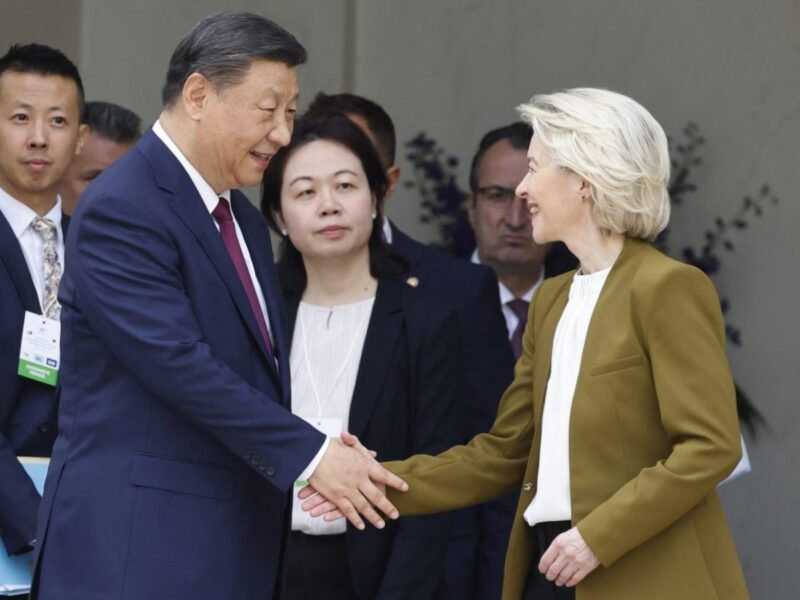
China has quietly escalated its campaign to isolate Taiwan — this time by pressuring European governments to deny entry to Taiwanese politicians, or risk “crossing China’s red lines.” Behind closed doors, Chinese diplomats have delivered pointed legal warnings to multiple European capitals, arguing that EU border rules obligate them to block Taiwanese officials from visiting Europe.
The move reflects a sharper, more coercive phase in Beijing’s diplomacy. By invoking the Schengen Borders Code — which allows entry denial if a visitor is deemed a threat to a country’s international relations — China is advancing an aggressive interpretation: that any engagement with Taiwan automatically threatens EU–China relations. In effect, Beijing is asking Europe to internalize China’s political sensitivities into its own visa enforcement.
European diplomats familiar with the demarches describe the legal reasoning as strained and unconvincing, but the tone as unmistakably intimidating — especially for smaller states more dependent on Chinese trade and investment. The message is less about law and more about leverage: accommodate Taiwan, and relations with Beijing may suffer.
This pressure campaign follows a series of high-profile visits by Taiwanese leaders, including the vice president and foreign minister, to EU member states and even the European Parliament. Beijing’s reaction signals that parliamentary diplomacy — once tolerated — is now being treated as a strategic provocation.
The broader pattern is clear. As China ramps up military pressure around Taiwan, it is simultaneously tightening diplomatic screws abroad, attempting to shrink Taipei’s international space without firing a shot. Europe, which officially maintains a “one China” policy but robust unofficial ties with Taiwan, is being tested: comply quietly, or assert political autonomy.
So far, responses suggest resistance. Several governments, including the UK, have stressed that visa decisions are governed solely by domestic law. Taiwan, meanwhile, has rejected Beijing’s claims outright, arguing that China’s coercion — not Taiwan’s diplomacy — is what truly destabilizes Europe’s international relations.
At its core, this episode exposes a growing fault line. Beijing is no longer content with managing Taiwan bilaterally; it is now attempting to discipline third parties. Whether Europe accepts that logic will shape not just EU–China relations, but the future balance between rules-based diplomacy and power-based pressure.
Top stories
Assessing the Strategic Failure of the Mogadishu Cabinet’s UAE Decree

Why Somalia’s UAE Decree Reveals Strategic Failure and Accelerates Somaliland’s Rise.
The Federal Government of Somalia’s decision to unilaterally void defense and security agreements with the United Arab Emirates is being framed in Mogadishu as an assertion of sovereignty. In strategic terms, however, it reads very differently: as a public admission of how little authority the federal cabinet actually exercises beyond the capital.
By targeting agreements tied to ports, logistics, and maritime security — sectors firmly outside its physical control — Mogadishu has effectively issued a decree to territory it does not govern. The move is heavy on symbolism and light on enforceability, underscoring a widening gap between legal claims and operational reality.
Nowhere is this clearer than in Somaliland. The UAE-backed expansion of Berbera Port continues uninterrupted, serving as one of the Horn of Africa’s most reliable trade and security hubs. Mogadishu’s argument that such agreements violate a provisional constitution collapses when confronted with three decades of autonomous governance in Hargeisa, including elections, taxation, security control, and international partnerships.
From an intelligence and risk-management perspective, the UAE’s posture is pragmatic rather than political. Abu Dhabi has consistently aligned itself with actors capable of delivering stability and protecting assets. Somaliland fits that profile; Mogadishu does not. The federal government’s own acknowledgment that enforcement would be “difficult” is, in effect, a concession that its authority over these spaces exists largely on paper.
The timing is also telling. Somaliland’s growing alignment with Israel, alongside sustained Emirati investment, is shaping a parallel Red Sea security and logistics architecture — one that operates entirely outside the Mogadishu framework. Instead of countering this shift, Somalia’s attempt to restrict Emirati military and cargo flights risks accelerating it, pushing partners further north toward jurisdictions that can guarantee access and continuity.
Strategically, this decree functions as weak-state signaling: an effort to project centralized control without the means to impose it. The real levers of power — ports, airspace reliability, maritime security, and diplomatic momentum — continue to migrate toward Hargeisa.
For regional and international actors, the lesson is increasingly clear. Stability in the Horn of Africa is no longer routed through a dysfunctional center. It is being built, quietly and methodically, where governance works. Mogadishu’s latest move does not slow that shift; it confirms it.
Top stories
Greenland: Europe Draws Red Line as Trump Threatens Force

Denmark Says Greenland Crisis at ‘Decisive Moment’ After Trump Renews Threats.
Denmark has warned that the standoff over Greenland has reached a decisive and dangerous moment, after U.S. President Donald Trump again suggested Washington could seize the Arctic territory “whether they like it or not.”
Danish Prime Minister Mette Frederiksen framed the confrontation as far bigger than Greenland alone, calling it a test of international law, sovereignty, and the right of peoples to self-determination. “There is a conflict over Greenland,” she said, adding that Denmark is prepared to defend its values — including in the Arctic.
Trump argues that U.S. control of Greenland is essential for national security, citing increased Russian and Chinese activity in the region. But his rhetoric has alarmed European allies, who see forced acquisition as a clear violation of international norms and a dangerous precedent.
Sweden and Germany quickly lined up behind Denmark. Swedish Prime Minister Ulf Kristersson condemned Washington’s “threatening rhetoric,” warning that a U.S. takeover would undermine international law and embolden other powers to redraw borders by force. Germany echoed those concerns, stressing that Arctic security must remain a collective NATO matter, not a unilateral one.
Behind the scenes, the dispute is already reshaping military planning. Reports suggest the UK, France, Germany and other NATO members are quietly discussing contingency plans for a potential NATO mission to protect Greenland, including deployments of troops, warships and aircraft. European officials frame this not as provocation, but deterrence — aimed at Russia, China, and now, increasingly, an unpredictable Washington.
Belgium has gone further, openly calling for a NATO “Arctic Sentry” operation modeled on existing Baltic and Eastern Sentry missions, using joint forces, drones and surveillance to stabilize the High North.
Greenland itself remains firmly opposed to any U.S. takeover. Polls consistently show overwhelming resistance among Greenlanders, who gained home rule in 1979 and continue to debate their future relationship with Denmark — on their own terms.
What makes this moment explosive is not just Trump’s language, but the broader signal it sends. If even allies feel threatened, the rules-based order in the Arctic — long defined by cooperation and restraint — is under real strain.
As Frederiksen put it, Greenland has become the front line in a much larger struggle over power, law and the future of the Arctic.
Top stories
Criminal Probe Against Powell Shakes US Economic Order

Trump Administration Opens Criminal Investigation Into Fed Chair Jerome Powell, Raising Alarm Over Central Bank Independence.
The Trump administration has crossed a historic red line, opening a criminal investigation into Federal Reserve Chair Jerome Powell — a move that has sent shockwaves through financial markets and reignited fears of direct political interference in U.S. monetary policy.
Powell confirmed Sunday that the Department of Justice issued grand jury subpoenas tied to his congressional testimony about the $2.5 billion renovation of the Federal Reserve’s Washington headquarters. But in an unusually blunt public statement, the central bank chief dismissed the probe as a “pretext,” warning that it represents an effort to intimidate the Fed for refusing to bend interest-rate policy to presidential demands.
At its core, this confrontation is not about construction costs. It is about power.
Trump has repeatedly attacked Powell for resisting faster interest-rate cuts, openly threatening to fire him and attempting to remove fellow Fed governor Lisa Cook. The investigation now escalates that pressure into the criminal arena — a step critics say threatens the institutional firewall that has insulated the Fed from politics for decades.
Powell framed the moment starkly: either the Federal Reserve continues setting rates based on data and economic conditions, or monetary policy becomes subject to political coercion. His warning resonated immediately. U.S. stock futures slid, the dollar weakened, and investor anxiety surfaced across global markets — a reminder that confidence in the Fed’s independence underpins the credibility of the U.S. economy itself.
Trump publicly denied knowledge of the probe but continued to deride Powell’s leadership, reinforcing the perception of a coordinated pressure campaign. Legal experts note that under U.S. law, a president can only remove a Fed chair “for cause,” not for policy disagreements — a safeguard now being stress-tested.
The political fallout is growing. Senator Thom Tillis said he would block any new Fed chair nomination until the case is resolved, while Senator Elizabeth Warren accused Trump of attempting a “corrupt takeover” of the central bank. Even some Republican lawmakers are warning that the credibility of the Justice Department itself is now at stake.
With Powell’s chairmanship ending in May and Trump expected to name a successor soon, the timing is no accident. Whether this investigation succeeds or collapses, the signal has already been sent: the independence of America’s most powerful economic institution is under direct assault.
For markets, allies, and rivals alike, this is no longer just a legal dispute — it is a stress test of whether U.S. institutions can withstand presidential pressure in a new era of confrontational governance.
Somaliland
Calls to Bomb Somaliland Trigger Historic Warning

Somalia Revives 1988 Rhetoric: Somaliland Condemns Somalia’s Bombing Threats, Citing 1988 Genocide and Violations of International Law.
Somaliland has issued a sharp diplomatic warning after senior Somali officials openly called for military attacks on its territory, reviving rhetoric that many Somalilanders associate with one of the darkest chapters in their history.
In a statement released this week, the Ministry of Foreign Affairs of the Republic of Somaliland condemned remarks by Somalia’s Minister of Defense, Ahmed Moallim Fiqi, who urged Arab countries — particularly Saudi Arabia — to bomb Somaliland “as they did in Yemen.” Hargeisa said the comments violate international law and the United Nations Charter and amount to incitement of war.
For Somaliland, the language is not abstract. Officials drew a direct parallel to 1988, when the Siad Barre regime hired foreign pilots and mercenaries to bombard Hargeisa and Burao, killing 500 of thousands of civilians in what is widely documented as genocide against the Isaaq population. The reference has struck a nerve across Somaliland, where collective memory of the air raids remains central to national identity.
The Foreign Ministry said the threats underscore why Somaliland remains united in defending its sovereignty, just as it did during the SNM-led resistance of the late 1980s. That uprising ultimately led to Somaliland’s withdrawal from the failed union and the restoration of its independence in 1991.
Hargeisa also dismissed Mogadishu’s threats as hollow, noting that Somalia remains heavily dependent on international aid and has failed for more than two decades to fully secure its own capital from Al-Shabaab. Recent Somalia threats against Israel — following Israel’s recognition of Somaliland — were described by officials as further evidence of political desperation rather than strategic capacity.
Adding to tensions, Somaliland pointed to Turkey’s recent delivery of military equipment to Mogadishu, warning that external militarization risks emboldening reckless rhetoric in an already fragile region.
For Somaliland, the message is clear: calls to repeat the crimes of 1988 will not intimidate a society that survived them. Instead, officials argue, such statements reinforce Somaliland’s case as a stable, self-governing state — and highlight Somalia’s continued struggle as one of the world’s most enduring failed states.
The Ghost of Sovereignty: Mogadishu’s Hollow Claim Over Somaliland Exposed
Middle East
Iran Bleeds as the World Watches: Over 500 Dead, Regime Tightens Grip
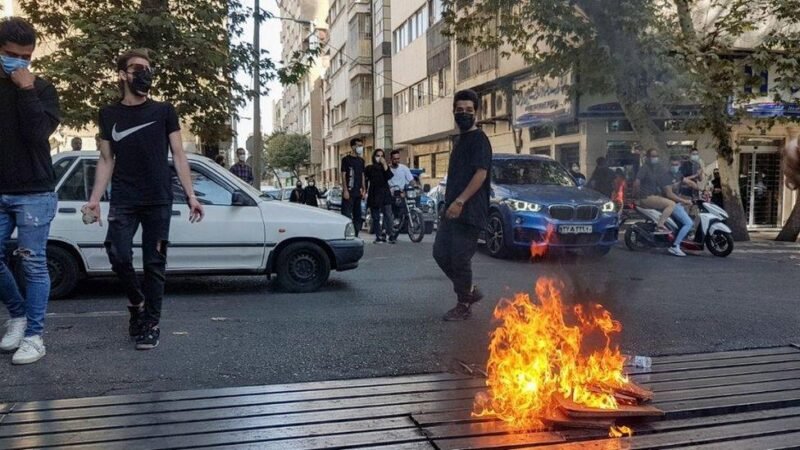
Iran Protest Death Toll Surpasses 500 as Trump, Israel Signal Escalating Pressure on Tehran.
Iran’s protest movement has entered its deadliest phase yet, with rights groups reporting that more than 500 people have been killed as security forces intensify a nationwide crackdown. According to the U.S.-based Human Rights Activists News Agency, at least 538 deaths have been documented so far — the vast majority protesters — alongside more than 10,600 arrests. The group warns the true toll is likely higher as Iran enforces near-total internet blackouts and cuts international phone lines.
The numbers point to a regime choosing force over compromise. What began as economically driven unrest has evolved into a direct challenge to clerical rule, met with mass detentions, live fire, and systematic information suppression. Tehran has released no official casualty figures, a familiar tactic during moments of internal crisis.
International pressure is now rising in parallel. President Donald Trump is reportedly weighing options ranging from new sanctions and cyber operations to more direct military measures. Israeli Prime Minister Benjamin Netanyahu added to the pressure by declaring that Israel hopes the “Persian nation will soon be freed from the yoke of tyranny,” a statement that openly frames the unrest as a liberation struggle rather than a domestic disturbance.
Meanwhile, exiled crown prince Reza Pahlavi has stepped forward, signaling readiness to return and oversee a political transition — a move that will further alarm Iran’s leadership, which views alternative centers of authority as existential threats.
The scale of deaths, the regime’s information blackout, and the growing chorus of external voices suggest Iran is approaching a decisive moment. Whether the protests collapse under repression or fracture the system from within may determine not just Iran’s future, but the balance of power across the Middle East.
Top stories
Trump Says Taiwan’s Fate ‘Up to Xi,’ Sparking Alarm Over U.S. Commitment
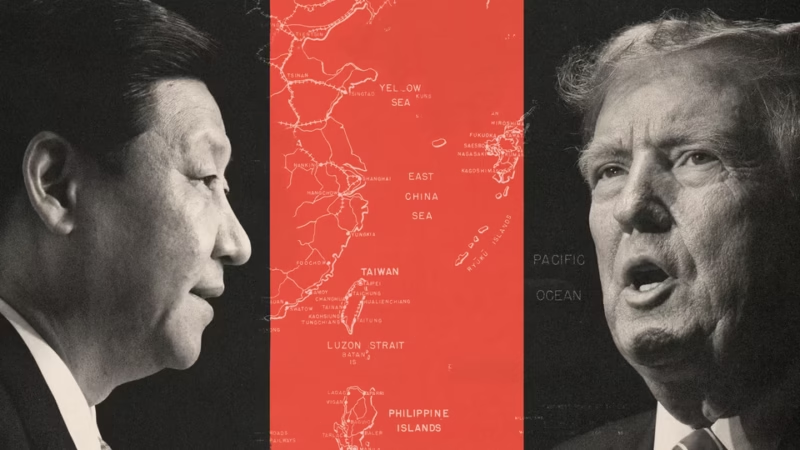
Trump: “It’s Up to Xi” on Taiwan but U.S. Would Be “Very Unhappy” With Change to Status Quo.
President Donald Trump has drawn fresh controversy by saying that Chinese President Xi Jinping ultimately decides what China does regarding Taiwan — effectively placing Taiwan’s future “up to him,” though he warned he would be “very unhappy” with any change to the status quo. Trump made the comments in an interview with The New York Times published Thursday, framing Taiwan’s situation as fundamentally Beijing’s decision and distinguishing it from U.S. actions in Venezuela.
Trump emphasized that Taiwan does not pose the same kind of direct threat to China that Venezuela’s government, in his view, posed to the United States, and expressed confidence that Xi would refrain from military action during his presidency, which runs through 2029. “He may do it after we have a different president, but I don’t think he’s going to do it with me as president,” Trump said.
The remarks prompted concern in Taipei and among U.S. allies, as they appeared to defer to Xi’s judgment on Taiwan’s fate and undercut longstanding U.S. strategic ambiguity about defending the self-governing island. China reacted by reiterating that Taiwan is an “inalienable part” of its territory and a purely internal matter that brooks no external interference.
While Trump signaled opposition to any forceful change in Taiwan’s status, his phrasing — that the decision rests with Xi — has raised fears in Washington, Taipei and allied capitals about the strength of U.S. deterrence and how Taiwanese security fits into broader U.S.–China strategic competition.
-
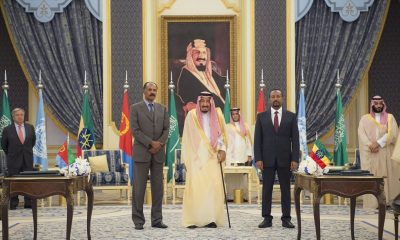
 Analysis10 months ago
Analysis10 months agoSaudi Arabia’s Billion-Dollar Bid for Eritrea’s Assab Port
-

 Opinion17 years ago
Opinion17 years agoSomaliland Needs a Paradigm Change: Now or Never!
-

 Interagency Assessment4 weeks ago
Interagency Assessment4 weeks agoTOP SECRET SHIFT: U.S. MILITARY ORDERED INTO SOMALILAND BY LAW
-

 Somaliland3 months ago
Somaliland3 months agoSomaliland Recognition: US, UK, Israel, and Gulf Bloc Poised for Historic Shift
-

 EDITORIAL1 year ago
EDITORIAL1 year agoDr. Edna Adan Champions the Evolving Partnership Between Somaliland and Ethiopia
-
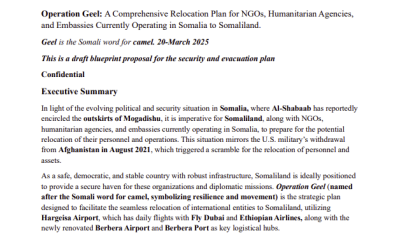
 ASSESSMENTS10 months ago
ASSESSMENTS10 months agoOperation Geel Exposes the Truth: International Community’s Reluctance to Embrace Somaliland as a Strategic Ally
-
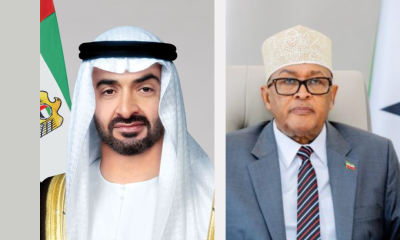
 Somaliland12 months ago
Somaliland12 months agoSomaliland and UAE Elevate Ties to Comprehensive Strategic Partnership
-
Top stories2 years ago
Ireland, Norway and Spain to recognize Palestinian state




















